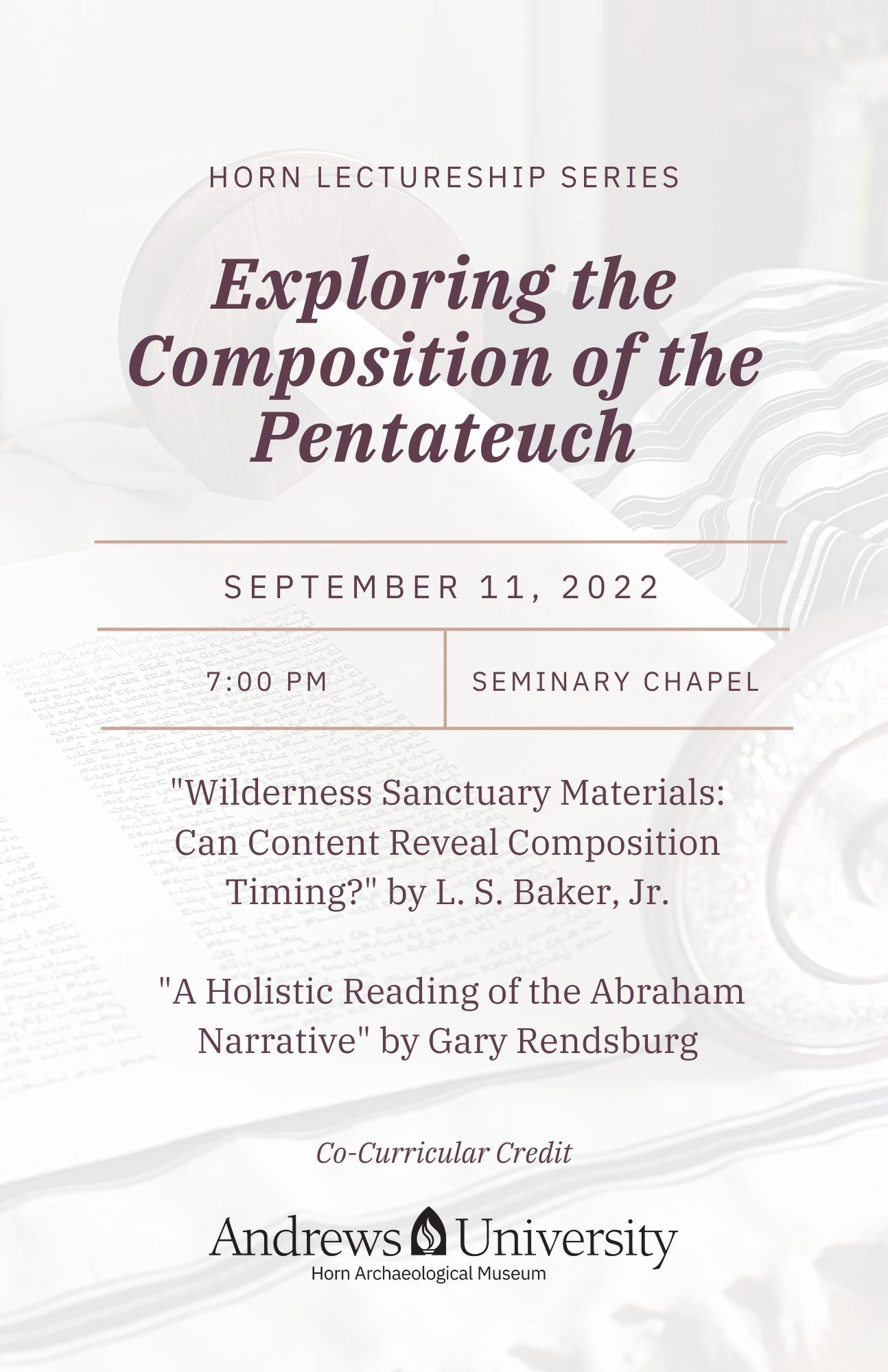Reflections on Genesis 37 and Efforts to Resuscitate the Documentary Hypothesis
Presenter Status
John R. Sampey Professor of Old Testament Interpretation and Professor of Biblical Theology, School of Theology
Location
Seminary Chapel
Start Date
4-4-2016 4:50 PM
End Date
4-4-2016 5:40 PM
Session
Comparative Studies
Presentation Abstract
Although the classic documentary hypothesis still has a number of advocates, many leading Pentateuchal scholars have abandoned some of its key tenets. Some reject the existence of J as a continuous, coherent text, and some who still hold to the existence of J treat it as an exilic or postexilic redaction instead of an early source document. In some respects, source criticism has returned to a fragmentary or supplementary hypothesis. Standing against this trend, Joel S. Baden advocates a return to a pristine form of the documentary hypothesis, one in which all four sources are fully recoverable and in which redactors play a minimal role. He seeks to demonstrate that J, E, D, and P best explain the formation of the Pentateuch. Genesis 37:18–36 is a key passage for Baden, as he believes it demonstrates the explanatory power of the documentary hypothesis. Upon close examination, however, Baden’s arguments collapse. Baden makes a number of other arguments for the four documents, and Philip Yoo makes a similar case for Deuteronomy 34. These claims, too, are unpersuasive.
Biographical Sketch
Duane Garrett grew up in Houston, Texas, where he studied classics at Rice University. He completed an MDiv at Trinity Evangelical Divinity School and a PhD at Baylor University. He has been on seminary faculties in South Korea, Canada, and the United States, including periods of service at Bethel Seminary in St. Paul, Minnesota, and Gordon-Conwell Seminary in South Hamilton, Massachusetts. He currently is John R. Sampey Professor of Old Testament at the Southern Baptist Theological Seminary. He and his wife, Patricia, have been married since 1978, and they have three grown children.
Reflections on Genesis 37 and Efforts to Resuscitate the Documentary Hypothesis
Seminary Chapel
Although the classic documentary hypothesis still has a number of advocates, many leading Pentateuchal scholars have abandoned some of its key tenets. Some reject the existence of J as a continuous, coherent text, and some who still hold to the existence of J treat it as an exilic or postexilic redaction instead of an early source document. In some respects, source criticism has returned to a fragmentary or supplementary hypothesis. Standing against this trend, Joel S. Baden advocates a return to a pristine form of the documentary hypothesis, one in which all four sources are fully recoverable and in which redactors play a minimal role. He seeks to demonstrate that J, E, D, and P best explain the formation of the Pentateuch. Genesis 37:18–36 is a key passage for Baden, as he believes it demonstrates the explanatory power of the documentary hypothesis. Upon close examination, however, Baden’s arguments collapse. Baden makes a number of other arguments for the four documents, and Philip Yoo makes a similar case for Deuteronomy 34. These claims, too, are unpersuasive.




Images